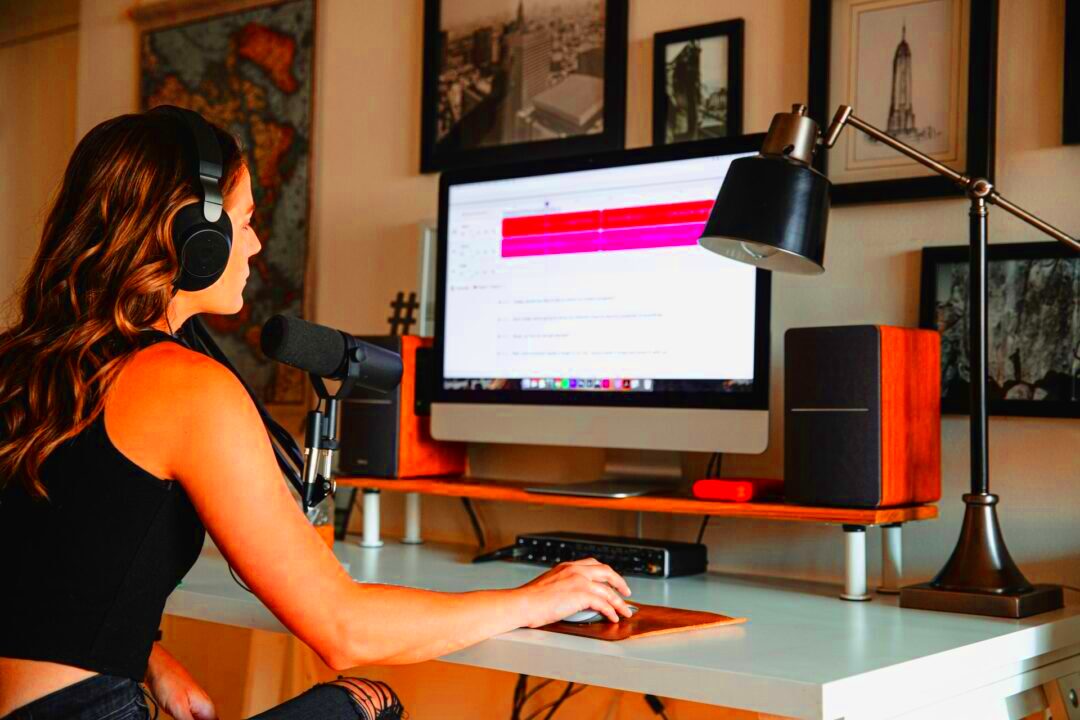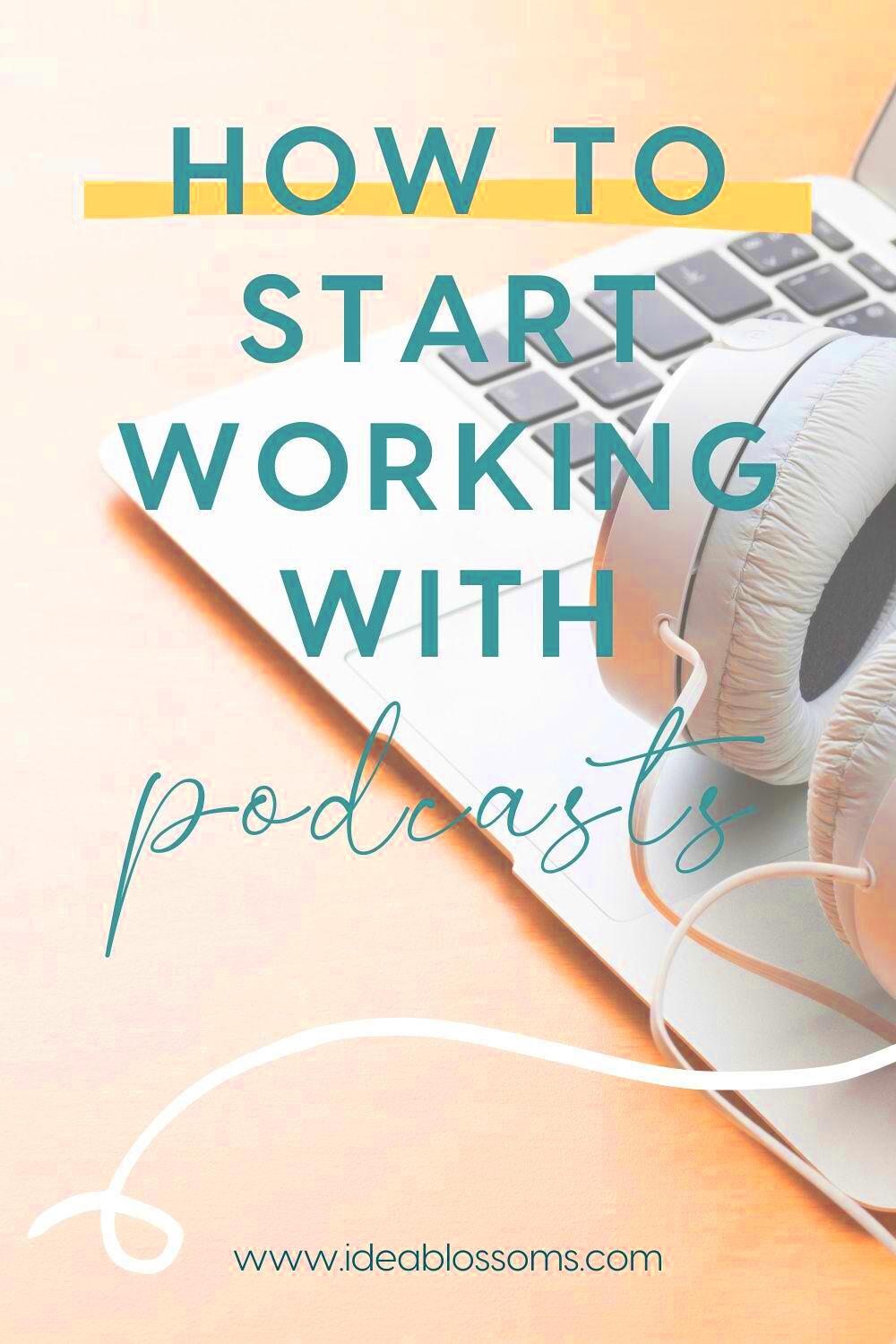Freelance podcast editing is an exciting and rewarding career path for those who enjoy working with audio and have a passion for storytelling. As a freelance podcast editor, you will help creators refine their audio content by improving sound quality, cutting unnecessary parts, and ensuring the final product is polished and professional. This role is crucial in the podcasting industry, as it can make a huge difference in how the audience experiences the podcast.
Key Skills Needed for a Freelance Podcast Editor

To succeed as a freelance podcast editor, you’ll need a variety of skills that go beyond just knowing how to use audio software. Here are some essential skills:
- Audio Editing Software Proficiency – Knowledge of tools like Adobe Audition, Audacity, or Reaper is essential for cutting, arranging, and mastering podcast audio.
- Attention to Detail – Editing audio involves a lot of small tasks, like cutting out pauses, fixing background noise, or improving audio quality. A keen ear for detail is crucial.
- Understanding of Audio Formats and Quality – Different podcasts have different formats, and knowing which audio quality is best for each situation is important.
- Communication Skills – As a freelancer, you’ll need to communicate clearly with clients to understand their needs, set expectations, and handle revisions.
- Time Management – Freelance work requires juggling multiple clients and deadlines, so good time management is key to staying organized and delivering on time.
Also Read This: Quick Explained Answer: Crafting a Compelling Gig Title for Fiverr Accountant Services
How to Build Your Portfolio as a Podcast Editor

Building a strong portfolio is crucial for attracting clients as a freelance podcast editor. Here’s how you can get started:
- Start by offering your services for free or at a low rate – To gain experience and build a portfolio, offer to edit a few podcasts for friends or small creators in exchange for testimonials or permission to include the work in your portfolio.
- Work on diverse projects – Try to work on different types of podcasts to show that you can edit a variety of content. Whether it’s interviews, storytelling, or educational podcasts, diversity will help you stand out.
- Create samples – If you don’t have any podcast clients yet, create sample edits using your own recordings or public domain content. Edit these into polished pieces and include them in your portfolio.
- Showcase your skills – Don’t just show raw edits. Make sure to demonstrate before and after examples, highlighting how you improved the sound quality, pacing, or overall listening experience.
- Use an online portfolio – Use websites like Behance or even your own personal website to showcase your podcast editing work. Make sure to include testimonials from satisfied clients if possible.
Also Read This: Where is Fiverr Present? A Global Overview
Finding Freelance Podcast Editing Jobs

Finding freelance podcast editing jobs can be challenging at first, but with the right approach, it becomes easier over time. The key is to be proactive, network effectively, and leverage platforms that cater to freelancers. Below are some strategies to help you find the best opportunities:
- Freelance Websites – Websites like Fiverr, Upwork, and Freelancer are great places to find freelance podcast editing jobs. You can create a profile, showcase your skills, and bid on relevant projects.
- Podcast Networks – Many podcast creators and networks are constantly looking for skilled editors. Reach out to popular podcast networks or individual creators to offer your services.
- Social Media – Platforms like LinkedIn, Twitter, and Instagram are great for building your presence. Follow podcast creators, engage with their posts, and promote your own work through regular updates.
- Online Communities – Join podcasting forums and Facebook groups where creators gather. These communities often share job opportunities or recommendations for editors.
- Word of Mouth – Your best referrals may come from friends, colleagues, or previous clients. Let everyone know you’re available for podcast editing work, and ask satisfied clients to recommend you to others.
Also Read This: What Fiverr Does: A Comprehensive Guide to the Freelance Marketplace
Setting Your Rates as a Podcast Editor
Setting the right rate as a freelance podcast editor is important for both attracting clients and making a sustainable income. Rates can vary depending on your experience, the complexity of the project, and the client’s budget. Here’s how you can determine your pricing:
- Start with Research – Look at what other podcast editors are charging. Rates can range from $20 to $100 per hour or more, depending on experience and the project.
- Hourly vs. Project-Based – Some editors charge by the hour, while others prefer to set a flat rate per episode. Consider your workflow and decide which model works best for you.
- Consider Experience – If you’re just starting, consider offering competitive rates to build your portfolio. As you gain experience and reputation, you can gradually increase your rates.
- Account for Additional Services – If you offer extra services like sound design, mixing, or scriptwriting, factor those into your pricing. These services can justify a higher rate.
- Set Minimum Rates – Even if you’re starting out, set a minimum rate for your work. This ensures that you’re not undervaluing your skills or overworking for little pay.
Also Read This: How to Change Your Profile Name on Fiverr: A Step-by-Step Guide
Effective Communication with Clients
Effective communication is key to building strong, long-lasting relationships with podcast clients. As a freelance editor, you need to be clear, responsive, and professional. Here are some tips for good communication:
- Be Transparent – From the start, let your clients know what to expect in terms of pricing, delivery times, and revisions. This sets clear expectations and avoids misunderstandings.
- Understand Client Needs – Before starting any editing work, take time to understand the client’s vision for the podcast. Ask questions about tone, pacing, and specific preferences so that you can tailor your edits to their expectations.
- Provide Regular Updates – Keep your clients informed about the progress of their projects. If you’re facing any delays or issues, let them know ahead of time. Regular communication helps build trust.
- Be Open to Feedback – No one gets everything perfect on the first try. Be open to constructive feedback and show your willingness to make revisions. This will keep clients happy and build a good reputation.
- Set Clear Deadlines – Always set realistic deadlines for each project and communicate them to your client. Stick to them as much as possible to maintain professionalism.
Also Read This: Fiverr پر Ú¯Ú¯ بÙاÙÛ Ú©Ø§ طرÛÙÛ
Tools and Software for Podcast Editing
As a freelance podcast editor, having the right tools is crucial to delivering high-quality work. The software you choose can make a big difference in how quickly and efficiently you can edit audio. Here are some of the most popular tools used by podcast editors:
- Adobe Audition – One of the most professional and widely used podcast editing tools, Adobe Audition offers advanced features like multi-track editing, noise reduction, and audio effects. It is best suited for experienced editors.
- Audacity – A free, open-source software that is great for beginners. While it lacks some advanced features of Adobe Audition, Audacity still provides powerful tools for editing, mixing, and mastering podcast audio.
- Reaper – A cost-effective option that provides robust editing capabilities. It’s a good choice for those who want a professional-grade tool without the high price tag of Adobe Audition.
- Hindenburg Journalist – Designed specifically for journalists and podcasters, Hindenburg offers easy-to-use tools for editing spoken word content. Its auto-leveling and simple interface make it ideal for those who want to focus on content, not the software.
- Auphonic – A web-based tool that focuses on audio processing and mastering. Auphonic is great for leveling out audio tracks, reducing background noise, and improving overall sound quality with just a few clicks.
Along with software, you’ll need some essential hardware, like a quality microphone, headphones, and possibly an audio interface. Investing in the right tools will help you deliver professional results to your clients.
Also Read This: How to Find My Gig URL on Fiverr
FAQ about Freelance Podcast Editing
Here are some frequently asked questions that can help you understand the freelance podcast editing industry better:
- How much do freelance podcast editors earn? – The earnings of a freelance podcast editor can vary widely depending on experience, the scope of work, and the client's budget. On average, freelance podcast editors can earn anywhere from $25 to $100 per hour.
- Do I need to be a professional sound engineer to edit podcasts? – No, you don’t need to be a professional sound engineer. While some technical skills help, most podcast editors are self-taught and focus on editing audio to make it clear, smooth, and engaging.
- How long does it take to edit a podcast? – The time it takes to edit a podcast depends on its length, the complexity of the edits, and the editor’s experience. Typically, it might take anywhere from 1 to 4 hours to edit a 30-minute podcast.
- Do I need to handle the podcast's content as well? – While some editors offer content-related services like scriptwriting or creating show notes, many podcast editors focus solely on the technical side of editing audio.
- How do I deal with clients who ask for constant revisions? – Setting clear expectations upfront about the number of revisions included in your rate is essential. You can also create a revision policy that explains when additional charges apply.
Conclusion
Freelance podcast editing can be a fulfilling career for those who enjoy working with audio and have an eye for detail. By developing your skills, building a strong portfolio, and using the right tools, you can carve out a successful freelance career. It’s important to understand the demands of the industry and set fair rates for your services. Communication with clients is key to maintaining strong relationships, ensuring that you meet their expectations, and growing your business. With the right approach, freelance podcast editing can offer both creative satisfaction and a steady income.




